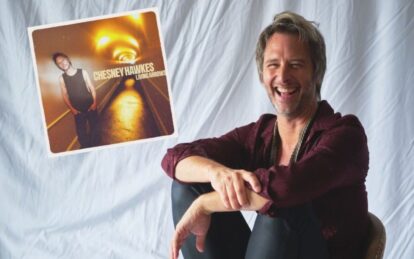
T’Pau China In Your Hand interview
It’s 36 years since T’Pau stormed the charts with China In Your Hand and sold a million of their debut album, Bridge Of Spies. In 2017, on the eve of a then-new boxset, The Virgin Anthology, Carol Decker discussed fame, nostalgia, Vulcans, vomit and dancing tampons… By Simon Goddard
In early November 1987, T’Pau were touring Germany as support to Bryan Adams when they were told they’d reached No. 1 in the UK singles chart.
“We just screeeeamed,” recalls singer and co-writer Carol Decker. “We were bouncing off the walls right outside Bryan’s dressing room when he came steaming out. We’d interrupted his afternoon nap.
“At the time I thought he was a grumpy old c***,” she cackles, “But when we told him why, he was lovely. Then we all had Champagne together. It’s one of my favourite T’Pau memories.”
Three decades later, Decker is still instantly recognisable as the ginger rock pixie belting out China In Your Hand, the song that prompted T’Pau’s siesta-spoiling hysteria backstage in Germany and which went on to spend five weeks at the top of the UK charts.
Perched on a sofa in a central London members club, clad in leatherette plastic trousers and white jumper with trademark red tresses spilling around her head like an Olympic flame, Decker looks equal parts Suzi Quatro and Ann-Margret, enjoying a mid-afternoon glass of wine and insisting Classic Pop join her for something similar.
Having just turned 59, Decker is everything you could wish from an Eighties pop veteran: candid, funny, gossipy, neither afraid of a self-deprecating anecdote nor a well-placed expletive.
“Butlins is mental,” she says of her recent escapades on the Eighties revival circuit. “Everybody goes in fancy dress. There was one guy jumping around in a big white oblong with a red strip down the middle.
“When I came off stage I asked somebody, ‘What the cocking hell is that?’ And they said, ‘Don’t you know? It’s Bodyform.’ Somebody had dressed up as the old [sings] Waaaaaaah! Body-foooorm! That advert. So there’s me singing China In Your Hand to a f***ing tampon.”
As much as Decker enjoys the comedy capers of her regular nostalgia tours, she maintains fierce pride in T’Pau’s back catalogue, now being reissued.
First came 2016’s deluxe edition of Bridge Of Spies, their quadruple-platinum-selling 1987 debut which spawned three Top 10 hits (Heart And Soul, China In Your Hand and Valentine).
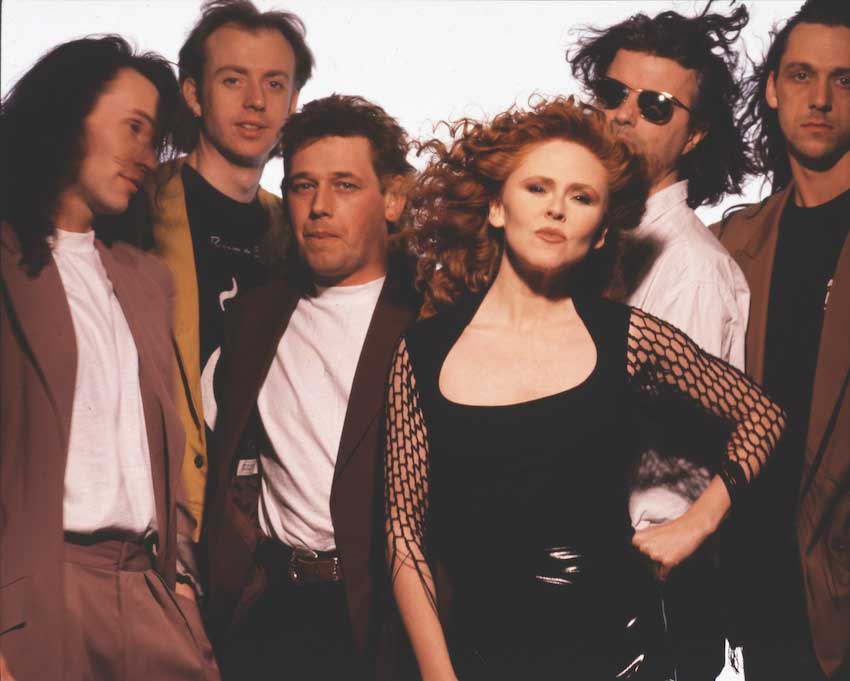
T’Pau circa Promise, 1991: “When bands break up it’s like divorce times five” © Tony McGee
Next, to mark the 30th anniversary of T’Pau’s annus mirabilis, March 2017 will witness the timely release of a new boxset, The Virgin Anthology, collecting singles, B-sides and the second and third albums Rage and The Promise in their entirety.
“We were a bloody good band,” she says firmly. “But we didn’t fit into any fashion. We had no buddies. We didn’t go to The Blitz. We couldn’t… we lived in Shrewsbury!”
The Shropshire market town is where the T’Pau story begins in 1980 when Decker, then fronting local band The Lazers, felt her knicker-elastic ping at first glimpse of guitarist Ronnie Rogers, singing with rivals The Katz.
“Dark, brooding, great charisma,” she says wistfully. “And an excellent player. I don’t know if I was actively looking for a soulmate, but I was looking for a life. That’s what I saw in Ron.”
Love and songwriting blossomed in a rented boathouse in the middle of Shrewsbury’s riverside park, The Quarry, where the mutually besotted Decker and Rogers spent years plotting and demoing without a band until finally choosing to hire musicians for an audition with Virgin Records in 1986. They were signed, on the spot, to Virgin’s Siren subsidiary.
It was Decker who christened the new band after watching an episode of Star Trek featuring two Vulcan women: T’Pring and T’Pau.
“We could’ve been T’Pring,” laughs Decker. “Some countries pronounced us Tee-por and Ta-poo. I just thought T’Pau sounded snappy and onomatopoeic.”
The Trekkie connection resulted in Decker later receiving a personalised signed photo from Leonard Nimoy.
“But it wasn’t in permanent marker,” she winces. “I had it unframed by the bed. One day I was dusting and I sprayed it with Pledge and the whole signature came off. I’d bloody erased Mr Spock!”
The man who’d acquired Nimoy’s autograph for Decker was Queen producer Roy Thomas Baker, the studio Midas who, sonically speaking, transformed T’Pau’s sound from Shrewsbury boathouse to Taj Mahal.

T’Pau China In Your Hand interview
“At one point Nile Rodgers was in the running,” says Decker. “I often wonder how Bridge Of Spies would have sounded had Nile produced it? Funkier, probably! But Ron was a massive Queen fanatic, so working with Roy was a dream.
“He was like Henry VIII, every night he’d eat a roast lamb dinner with a big goblet of wine.
“He was larger than life and he made our songs larger than life. China In Your Hand was just a basic piano and vocal thing that me and Ron had started working on.
“It wasn’t even going to be on the album until we had to drop another song that wasn’t working. Roy said, ‘Have you got anything else?’ We played him the bare bones of China and he went, ‘That’s it! That’s your No. 1!’
“The next thing Roy’s turned our little piano song into Bohemian Rhapsody.”
After recording the album in Chicago, Baker invited Decker and Rogers to join him for a celebratory wrap weekend in Los Angeles, culminating in Decker throwing up against the producer’s Rolls-Royce after a riotous night necking flaming Sambucas with Mötley Crüe.
“I got out of the car just in time and Roy’s yelling ‘Don’t you be sick on my Silver Ghost!’”
Back in the UK, T’Pau’s record company felt similarly queasy when they heard the finished album mix.
“Roy put all this compression on it so it sounded amazing on the radio,” explains Decker. “But on a home stereo it sounded awful. Our boss, David Betteridge, was furious with us because it had cost a lot of money.
“We released the first single, Heart And Soul, and it flopped. They went ‘Told you so!’ I genuinely thought we were going to get dropped.”
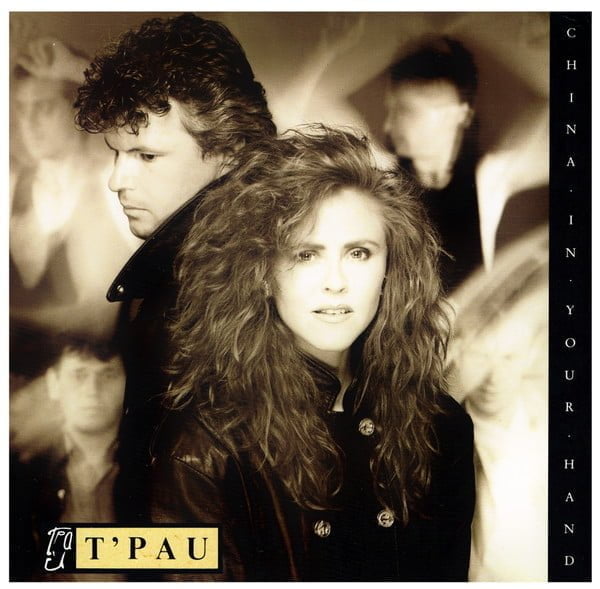
T’Pau China In Your Hand
Only when Heart And Soul started to climb the US charts did the sagacity of Baker’s FM-shaped masterplan reveal itself.
When Pepe Jeans then picked up on the track for a UK cinema commercial, T’Pau’s fortunes at home finally turned around.
Heart And Soul reached No. 4 on both sides of the Atlantic, T’Pau finding their place as Britain’s answer to the hairspray’n’leather pop-rock of Heart and Starship.
At the age of 29, Decker was finally a pop star, her debut appearance on Top Of The Pops another vivid life landmark memory. “Looking down the camera lens. ‘Whaddya think of me, now?’ God, absolutely!”
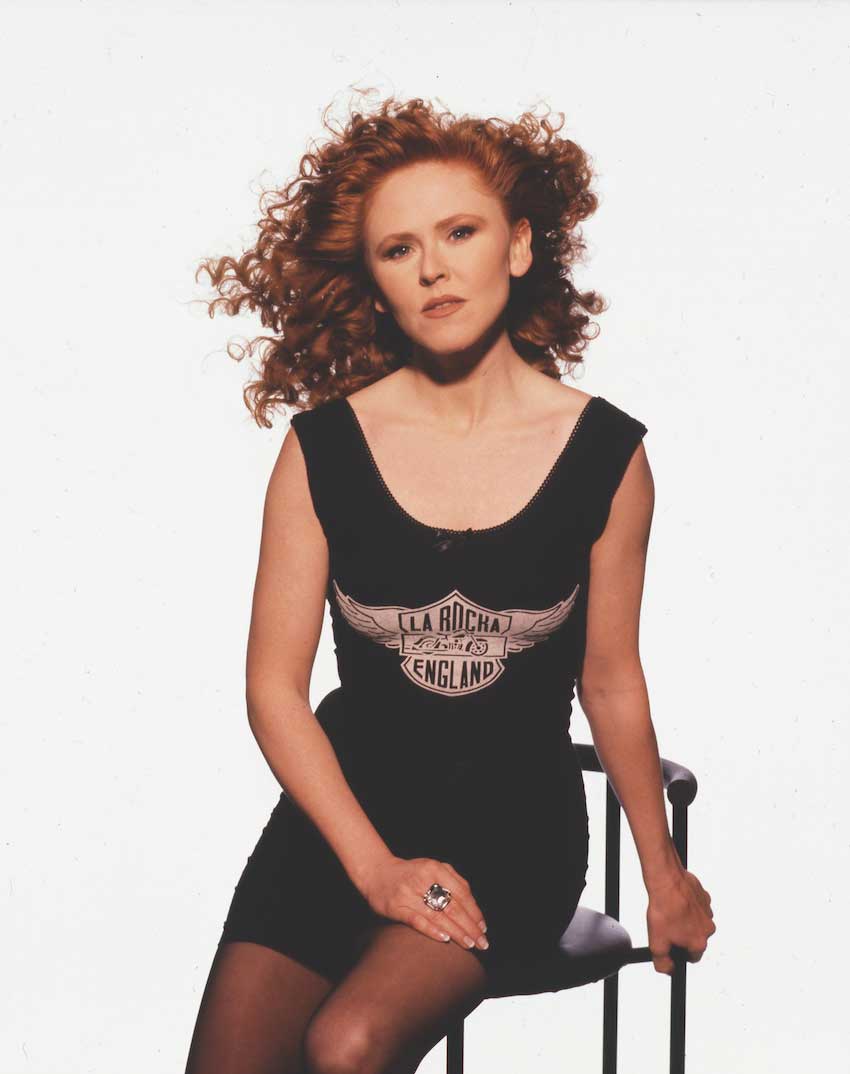
Carol Decker, 1991 © Tony McGee
In her 2016 autobiography named after that same breakthrough hit, Decker speaks very honestly about her hunger for public recognition.
“When I became famous I felt, as they say in psycho-babble, ‘validated’,” she writes in Heart And Soul. Why does Decker think she needed that validation?
“You’re going to have to take out a very small violin,” she laughs, going on to describe her childhood “always on the outside, looking in”.
- Read more: Top 20 girl groups
Born in Huyton on the edge of Liverpool (there’s still a faint Mersey echo in her voice, not unlike Julie Walters), Decker was seven when her family moved to Wellington, Shropshire, suddenly a working-class ugly duckling in a school of privileged swans.
“I had a bad turn in my eye, NHS glasses, buck teeth, I was really thin and had bright orange hair. I looked like a match with glasses. And I talked [comedy Scouse] ‘like dah, laaa, y’knooow!’”
Growing up in Wellington, Decker felt ostracised: the Northern pauper who couldn’t afford to go on school skiing trips, regularly roughed up by posh girls on the way home. Singing would become her salvation, and fame, clearly, a last laugh of revenge.
“Damn straight I enjoyed being famous,” she says without apology. “It had taken me long enough and when T’Pau finally made it, I was ready for it.”
The pop world, too, was ready for Decker, soon becoming a favourite of Smash Hits, the then-million-selling fortnightly magazine who applauded any star game enough to tell its readers about the time they vomited in their cowboy boots.
Fame was never a problem for Decker – nor, she thought, her partner Rogers, until an incident in Oxford during the making of 1988’s Rage revealed otherwise.
“This was the height of our popularity. Me and Ron were in Oxford’s Covered Market, and were spotted. People started swarming around me like ants, wanting autographs. Ron stood back. I thought he was just being grumpy.
“But then afterwards he said, and the words are seared into my brain, ‘I don’t want to spend the rest of my life standing in shop doorways waiting for you to sign bits of paper.’
“I understand him now. That’s not what he got into music for. But the writing was on the wall without a doubt.”
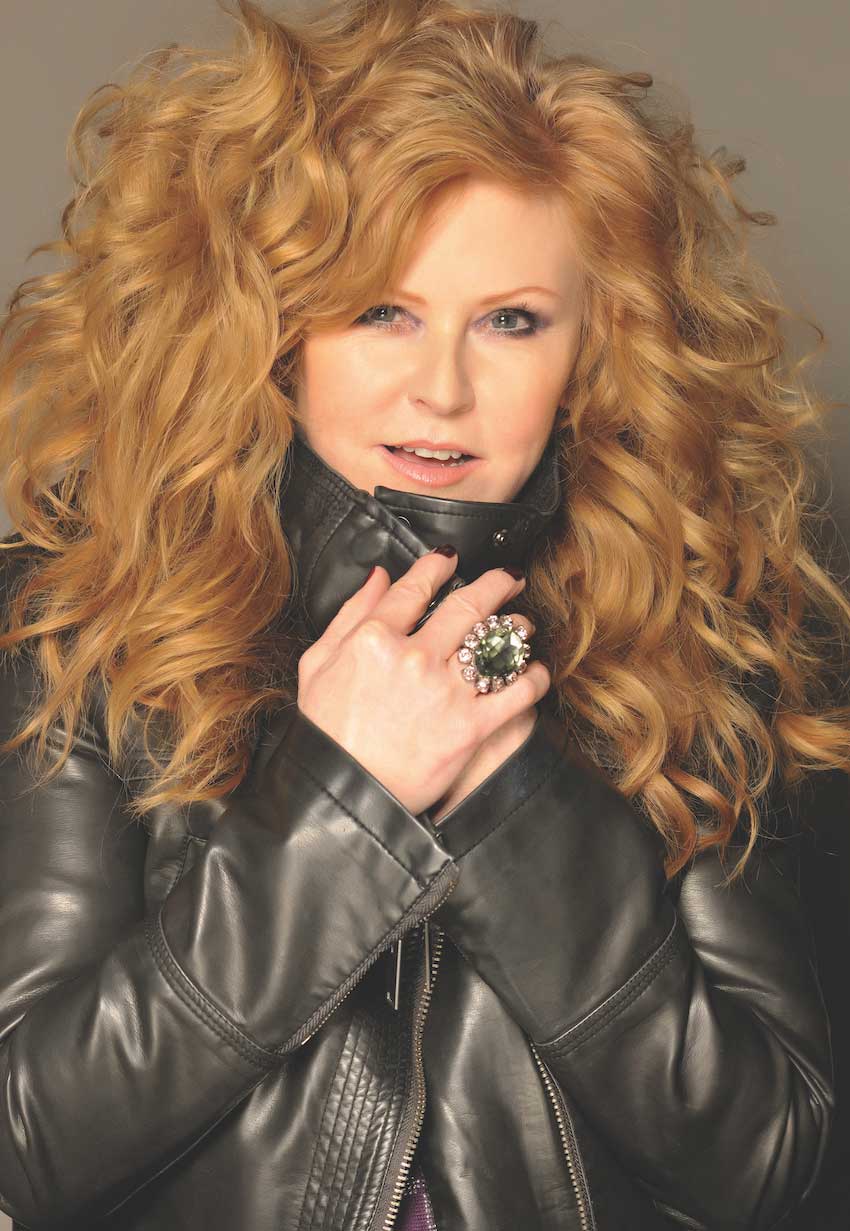
T’Pau China In Your Hand interview
Second album Rage went platinum in the UK, though more ominously none of its singles went Top 10: the highest, Secret Garden, peaked at No. 18 in October 1988.
A louder warning bell tolled when their manager arranged a special one-off concert, ‘One Night With T’Pau’, in Dundee, a city none of the band had any affiliation with whatsoever.
Poorly advertised, they only managed to fill the venue to the three-quarters mark after flyposting the city themselves in an eleventh-hour panic.
“All I can say is that the people who were supposed to be looking out for the band weren’t,” says Decker of their offstage business problems. “You speak to any successful band. It’s the oldest story ever told.”
Third album The Promise was even more painful for Decker, recorded after her father’s death amongst a creative mutiny from the other band members demanding they usurp the Decker/Rogers alliance and contribute their own material.
In vain, as it happened. By the time of its release in the E-gobbling summer of 1991, T’Pau were woefully out of fashion.
“It was overnight,” says Decker. “We went from Wembley Arena back to the Hammersmith Odeon. Even with my shit maths I could tell things weren’t going well.”
Diminishing returns triggered a brutal domino effect. The band were dropped. T’Pau broke up. Then, on Valentine’s Day 1993, so did Decker and Rogers.
“I didn’t realise that if the band finished it would affect me and Ronnie,” she says ruefully. “That the one couldn’t survive without the other.”
Read more: Blondie & Debbie Harry: the complete guide
Having lost her band, and her partner of 13 years, could things possibly have gotten any worse for Decker?
“I got chatted up by Chris de Burgh,” she shivers, comically stabbing sick-fingers down her throat.
“After I split with Ron I was at a wedding stood holding a glass of wine. He came up and said, ‘I see you like wine? I have a very big wine cellar, would you like to come and see it?’ And this would’ve been around the time he was caught bonking his nanny.”
Mercifully, fate had gladder tidings in store for Decker than becoming the next Mrs de Bleeurgh (as her pals at Smash Hits christened The Lady In Red groaner).

More encouraging for T’Pau fans, she’s once again working with Rogers, reuniting for 2015’s Pleasure & Pain while both contribute to the sleevenotes of the forthcoming Virgin Anthology boxset.
“It’s been cleansing,” says Rogers of compiling the latter, “and a rocket up our ass to do something new. We’ll see.”
“It has all been strangely good timing,” agrees Decker. “We went horribly out of fashion until the Eighties came back into fashion.
And September 2017 will be 30 years since Bridge Of Spies, and my 60th. So we should probably do a gig to celebrate, shouldn’t we? I’d better start organising my shit…”
Another mischievous laugh and a quickly drained glass.
“Oh, let’s have another drink! Did I tell you about my toilet accident in a white dress on the tour bus in Cleveland?” With the invincible Carol Decker, there’s always one more story for the road.
- Want more from Classic Pop magazine? Get a free digital issue when you sign up to our newsletter!
Classic Pop may earn commission from the links on this page, but we only feature products we think you will enjoy.





